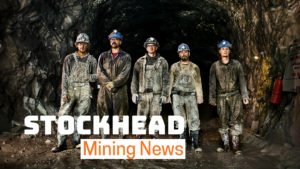Kidman makes history as first Aussie miner to shake hands with Tesla

Elon Musk, boss of electric car maker Tesla. Pic: Getty
Kidman Resources can lay claim to being the first Australian lithium miner to strike a supply deal with American electric car giant Tesla.
Kidman (ASX:KDR) told investors this morning it had locked in a three-year, fixed-price take-or-pay agreement with two more three-year term options to supply lithium hydroxide to Tesla.
The deal is good news for all lithium mining stocks. Here’s a list of ASX-listed small caps with exposure to lithium.
The supply will come from the Mount Holland lithium deposit in Western Australia, which is a joint venture between Kidman and the world’s biggest lithium producer Chile’s Sociedad Quimica y Minera.
Stockhead understands no other Australian miner is yet producing lithium hydroxide, which is supplied direct to electric car battery makers.
Earlier this month the joint venture partners secured a refinery site at Western Australia’s new Kwinana Strategic Industrial Area (SIA).
The Kwinana SIA is a specialist centre for chemical and resource-based processing industries, directly adjacent to the Fremantle Port’s deep-water bulk materials facilities and associated road and rail and networks.
The refinery is expected to be commissioned in 2021, with an initial annual capacity of about 44,000 tonnes of lithium hydroxide or 37,000 tonnes of lithium carbonate.
Kidman maintains the right to participate in up to 50 per cent of the refinery investment and market its portion of the refined product.
“The Tesla agreement is an important milestone for Kidman. It further validates our strategy of being an ASX-listed manufacturer of battery-grade refined lithium,” managing director Martin Donohue said.
“The agreement enhances Kidman’s post refinery commissioning cash flow profile.”
- Bookmark this link for small cap breaking news
- Discuss small cap news in our Facebook group
- Follow us on Facebook or Twitter
- Subscribe to our daily newsletter
The Telsa deal covers less than 25 per cent of Kidman’s share of initial nameplate production for the first three years from the refinery.
This is the first off-take deal for Kidman and the company is continuing talks with other parties with a view to securing additional supply deals.
Kidman says so far expressions of interest from these parties have “materially exceeded” the company’s share of initial production.
Related Topics
UNLOCK INSIGHTS
Discover the untold stories of emerging ASX stocks.
Daily news and expert analysis, it's free to subscribe.
By proceeding, you confirm you understand that we handle personal information in accordance with our Privacy Policy.








